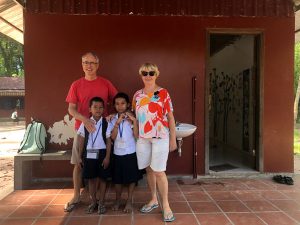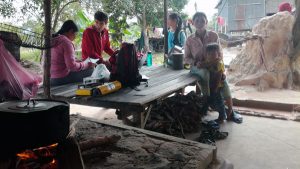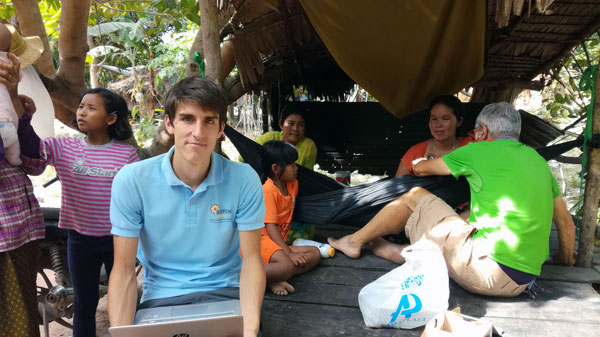
The Health team this year comprises Jean-Pierre, Michèle, Soky and me, volunteer for a year hoping to consolidate the health actions led by the Bayon School, and we are in the process of recruiting a school nurse.Our wish is now to reinforce, develop and, more importantly, open this Health project to the families. In order to achieve this target and to identify the priority areas for action, we decided to carry out a thorough analysis of the health and sanitary conditions in the families; we took advantage of the annual social visits to explore the theme of their health. The scope of the study was limited this time to the families of the primary school pupils.A survey was drafted by both the social and health teams, with a certain number of areas to be explored: housing, access to water, maternal health, medical history, role of local beliefs, health care and care centres, medical costs.

Between December 2019 and March 2020, each of the 162 families of the primary school received a visit which enabled us to understand their situation and discuss their individual issues with them. Each visit was carried out by Jean-Pierre, our doctor and one of the three Khmer social workers, Soky, Chhein or Srotom. The families all welcomed the survey: they spoke openly about their difficulties and are now waiting for the solutions that we are hoping to provide.
Both the answers received to the survey and the visual observations during the visits are important. The information collected is essential to give us a clearer idea of the sanitary conditions that the primary school pupils return to, once the school day is finished.
The conclusions of this survey will be summarised in a report mid-April, giving us a clear view of the current situation and the strategy we will need to implement to improve it.

In the meantime, the first results are already available with, on the one hand, a number of common problems:
• Access to drinking water and clean toilets is not widespread;
• There are many miscarriages and induced abortions;
• Addictions (alcohol and cigarettes) are a major problem;
• Dental problems are significant, as are the number of cases of untreated high blood pressure.
• Finally, medication is haphazard and irregular with a failure to seek treatment, which can be linked to education, cost or the family organisation; this merits extremely close medical follow-up.
On the other hand, certain medical issues are particularly complex and will require an individual solution.

